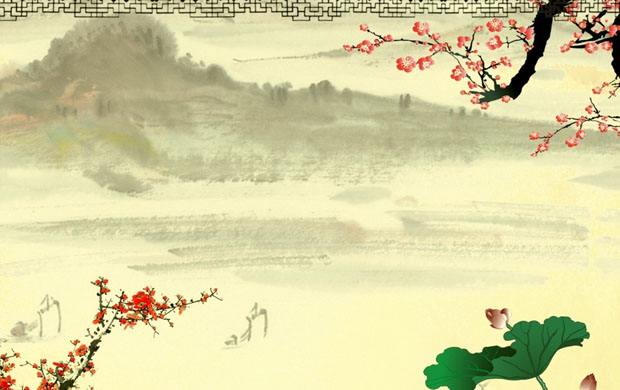10 Best Chinese Classic Novels of All Time

Chinese classic literature offers some of the most excellent novels ever written. We pick the classic novels all Chinese novel fans should read.
1. Romance of Three Kingdoms – Luo Guanzhong (Ming Dynasty)
The novel depicts nearly a hundred years of historical events starting from the late Eastern Han Dynasty to the early Western Jin Dynasty. The novel reflects the political and military struggle and the transformation of various social contradictions during the Three Kingdoms period (220-280), summarizing the historical changes of the times, creating a group of powerful heroes. The author shows significant tendency of supporting Liu Bei and opposing Cao Cao.
2. Fengshen Yanyi – Xu Zhonglin (Ming Dynasty)
“Fengshen Yanyi” or “Tales of the Teahouse Retold: Investiture of the Gods” is a 16th-century Chinese fantasy genre novel. The novel consists of 100 chapters in total. Based on the framework that King Wu led punitive expeditions to conquer King Zhou, the book describes how the heavenly gods split into two groups and fight against each other to support the either side. After a series of wars, King Zhou was defeated by Jiang Ziya, the organizer of an army to overthrow the tyrant. Finally, the heroes of Zhou and some of their fallen enemies of Shang are endowed with heavenly ranking by Jiang Ziya. The book is well-known for its great length and strange fantasy.
3. Water Margin – Shi Naian (Ming Dynasty)
“Water Margin” or “Outlaws of the Marsh” is one of China’s Four Great Classical Novels. Set in the late Song Dynasty, the novel describes how a group of 108 Liangshan heroes led by Song Jiang, rise up in rebellion, but are finally granted amnesty by the government and sent to suppress other rebel forces. It vividly depicts peasants’ entire uprising process from occurrence, development and failure, enthusiastically praises their heroic struggle against the ruling class. The novel has a profound influence on narrative literary in China and the East Asia.
4. The Scholars – Wu Jingzi (Qing Dynasty)
“The Scholars” is a chapter-novel created by Wu Jingzi in the Qing Dynasty. It includes a total of 56 chapters with about 400 000 words. The novel depicts nearly two hundred people; the writing of the novel has occupied the author for more than ten years. On the pretext of the Ming Dynasty, the novel actually describes scholars’ fame and life under the imperial examination system during Kangxi and Qianlong period.
5. The Travels of Lao Can – Liu E (Qing Dynasty)
“The Travels of Lao Can” by Liu E (1857 -1909) is one of the Late Qing Four Condemned Novels. The novel, with a total of 20 chapters, tells of things seen and heard by a doctor Lao Can during his travels, the novel is greatly praised for its vivid description. This is also the only fiction work by Liu E.
6. A Heroic Legend of the Sons and Daughters – Wen Kang (Qing Dynasty)
The novel was written by Wen Kang and has a total of 40 chapters. This work is China’s earliest social novel which mixes chivalry and romance together, mainly portraying the image of chivalrous girl Sister Thirteen.
7. Dream of the Red Chamber – Cao Xueqin (Qing Dynasty)
“Dream of the Red Chamber”, also known as “The Story of the Stone”, was written by Cao Xueqin in the latter half of the 18th century. The tragic love story between Jia Baoyu and Lin Daiyu and Jia, Wang Shi, Xue four families’ declining fortunes forms the main story. The novel also involves various social and political issues such as the feudal law, patriarchal system, women, ethics, marriage etc. “Dream of the Red Chamber “is praised as the encyclopaedia of social life of the late feudal society.
8. Nie Hai Hua – Zeng Pu (Qing Dynasty)
This novel is also known as “Flower in the sea of evil” is one of the Late Qing Four Condemned Novels. The novel has 35 chapters in total. It displays three decades of historical and cultural changes in China’s social and political life starting from early years of Tongzhi reign to the Jiawu War.
9. Flowers in the Mirror – Li Ruzhen (Qing Dynasty)
“Flowers in the Mirror” is a 100-chapter mythical novel by Li Ruzhen (about 1763—1830). The first half of the novel tells the story of Tang Ao, Duo Jiugong and others go overseas by boat, including their experiences in the “country of Gentlemen”, “the Country of Women”, “the Country of Intestineless People” and other countries. The latter part tells that Tang Xiaoshan and other one hundred female talents who are transformed by flower fairies pass imperial election and do something worthwhile in the court.
10. Journey to the West – Wu Chenen (Ming Dynasty)
“Journey to the West” is a classical gods-and-demons novel and one of China’s Four Great Classical Novels. The novel tells how the Buddhist Sanzang and his three followers went to the Western Heaven to acquire scriptures. The novel was created in the mid-16th century during the Ming Dynasty and is generally attributed to the author of Wu Chengen.
